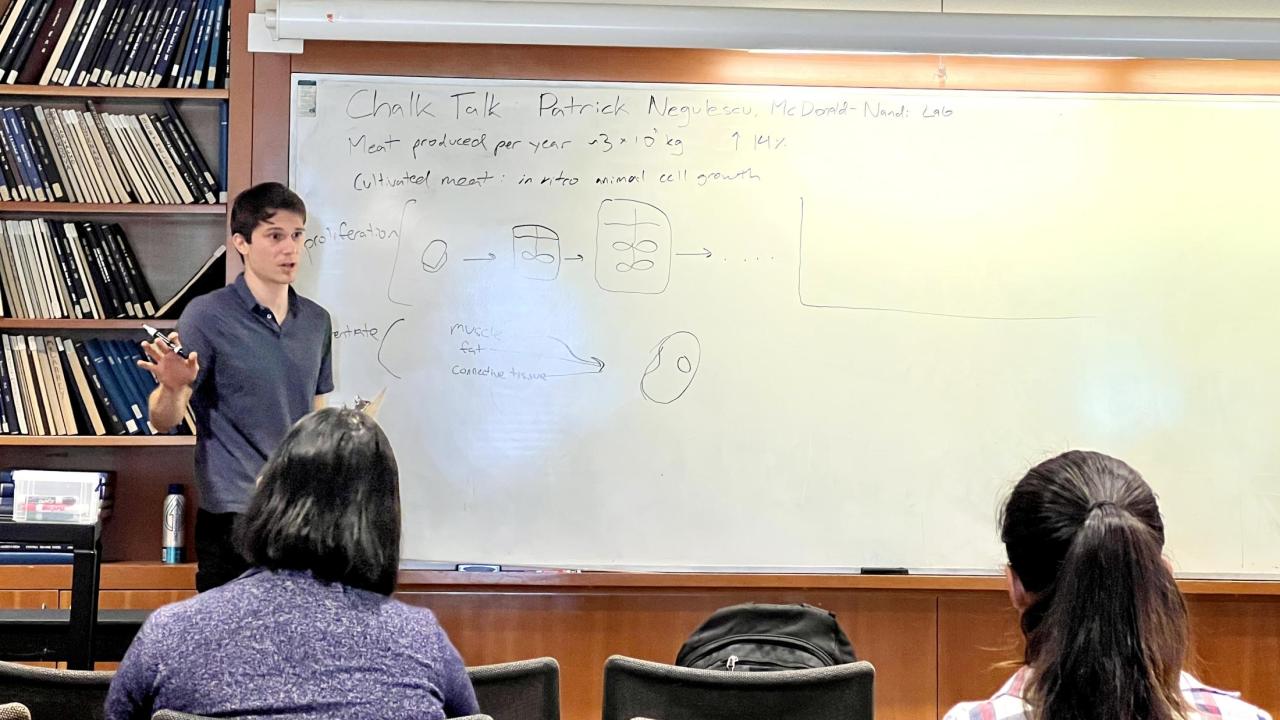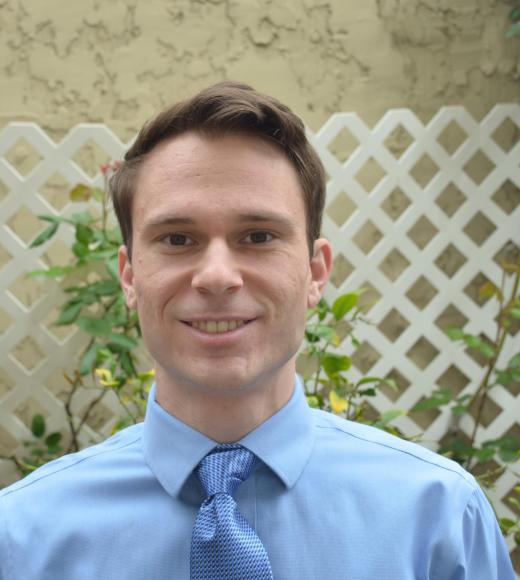
Patrick Negulescu Receives 2023 Jeffery C. Gibeling Award for Best Master's Thesis

Patrick Negulescu is the 2023 recipient of the College of Engineering's Jeffery C. Gibeling Master's Thesis Excellence Award. Negulescu completed his Master of Science degree in chemical engineering in 2022 and was supervised by Distinguished Professor of Chemical Engineering Karen McDonald and adjunct professor Somen Nandi.
The annual award recognizes one M.S. student in the College of Engineering who has submitted the best master's thesis. The award not only honors the individual student and publicizes their exemplary research, but also acknowledges the mentorship of their major professor.
The Gibeling Award is named in honor of Professor Emeritus of Materials Science and Engineering Jeffery Gibeling, who spent 14 years in leadership roles in UC Davis Graduate Studies, served as the college's interim dean in 2021 and was the first chair of the Department of Materials Science and Engineering. He currently serves as the Interim Vice Chancellor for Research, a position he was appointed to by Chancellor Gary May on March 1.
"Winning this award means a lot to me because it symbolizes all the hard work I put in while in (graduate) school," Negulescu said. "There were difficult times but persevering through that and seeing the fruits of my hard work means so much to me."
Testing the Theoretical Limits of Cultivated Meat Production
Negulescu's research focused on techno-economic analysis, which involves make a comprehensive assessment of a particular technology or production method to assess the technical feasibility and economic success of any certain process.
His thesis, "Techno-Economic Analysis of Large-Scale Cultivated Meat Production," focused on cultivated meat, a novel technology that generates meat products by growing cells in reactors and removing the need for traditional animal farming.
While cultivated meat is a relatively new industry, it receives a large amount of media attention with significant commercial investment. Despite this, there are no large-scale commercial production facilities and very few detailed engineering process simulation models and techno-analysis for such facilities.
"I designed a conceptual large-scale facility that produces cultivated meat in order to assess how successful this facility would be and to analyze the prospects of a cultivated meat industry," he said. "Such an analysis could highlight scientific, engineering or economic bottlenecks in the process that must be addressed in a path forward for developing this technology."
In Negulescu's thesis, theoretical beef production facilities with the goal of an industry in which such facilities produce 100,000,000 kilograms of unstructured cultured beef per year were created using SuperPro Designer software. Those facilities were modeled to create a comprehensive techno-economic analysis to highlight improvements the cost of such a production system to allow cultivated meat products to be economically competitive.
"Patrick's dissertation is a wealth of clear information, intelligence, knowledge and example of excellent writing skill to many of M.S. students in the future," Nandi said.
Giving Back Through Education
A first-generation engineering graduate student, Negulescu is currently a teacher in the Brilla Schools Network as part of the Seton Teaching Fellows in the Bronx, N.Y.
Among his duties, Negulescu teaches 5th grade science and mathematics and serves as an English language assistant.
